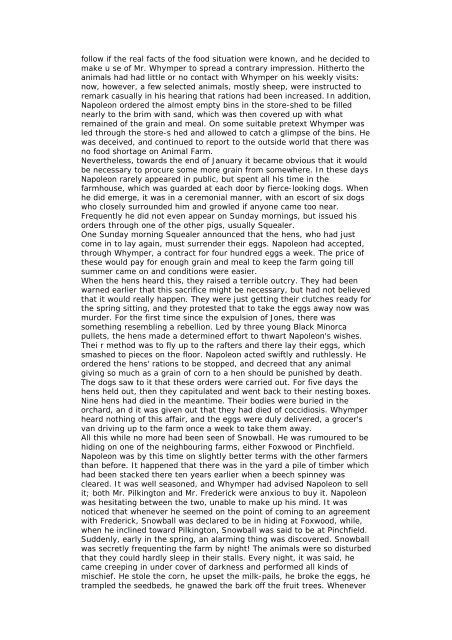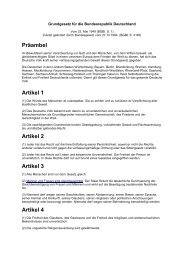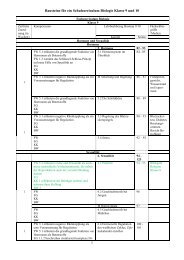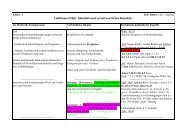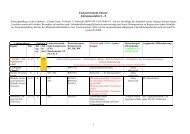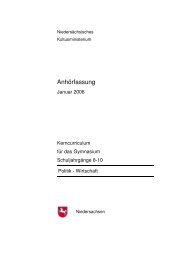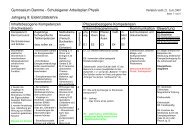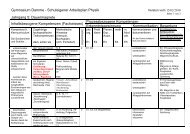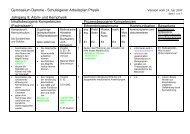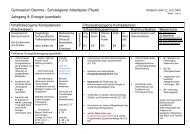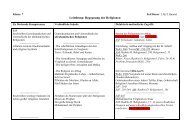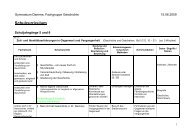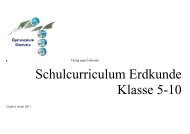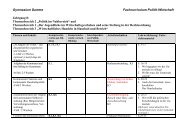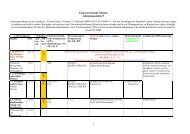You also want an ePaper? Increase the reach of your titles
YUMPU automatically turns print PDFs into web optimized ePapers that Google loves.
follow if the real facts of the food situation were known, and he decided to<br />
make u se of Mr. Whymper to spread a contrary impression. Hitherto the<br />
animals had had little or no contact with Whymper on his weekly visits:<br />
now, however, a few selected animals, mostly sheep, were instructed to<br />
remark casually in his hearing that rations had been increased. In addition,<br />
Napoleon ordered the almost empty bins in the store-shed to be filled<br />
nearly to the brim with sand, which was then covered up with what<br />
remained of the grain and meal. On some suitable pretext Whymper was<br />
led through the store-s hed and allowed to catch a glimpse of the bins. He<br />
was deceived, and continued to report to the outside world that there was<br />
no food shortage on Animal Farm.<br />
Nevertheless, towards the end of January it became obvious that it would<br />
be necessary to procure some more grain from somewhere. In these days<br />
Napoleon rarely appeared in public, but spent all his time in the<br />
farmhouse, which was guarded at each door by fierce-looking dogs. When<br />
he did emerge, it was in a ceremonial manner, with an escort of six dogs<br />
who closely surrounded him and growled if anyone came too near.<br />
Frequently he did not even appear on Sunday mornings, but issued his<br />
orders through one of the other pigs, usually Squealer.<br />
One Sunday morning Squealer announced that the hens, who had just<br />
come in to lay again, must surrender their eggs. Napoleon had accepted,<br />
through Whymper, a contract for four hundred eggs a week. The price of<br />
these would pay for enough grain and meal to keep the farm going till<br />
summer came on and conditions were easier.<br />
When the hens heard this, they raised a terrible outcry. They had been<br />
warned earlier that this sacrifice might be necessary, but had not believed<br />
that it would really happen. They were just getting their clutches ready for<br />
the spring sitting, and they protested that to take the eggs away now was<br />
murder. For the first time since the expulsion of Jones, there was<br />
something resembling a rebellion. Led by three young Black Minorca<br />
pullets, the hens made a determined effort to thwart Napoleon's wishes.<br />
Thei r method was to fly up to the rafters and there lay their eggs, which<br />
smashed to pieces on the floor. Napoleon acted swiftly and ruthlessly. He<br />
ordered the hens' rations to be stopped, and decreed that any animal<br />
giving so much as a grain of corn to a hen should be punished by death.<br />
The dogs saw to it that these orders were carried out. For five days the<br />
hens held out, then they capitulated and went back to their nesting boxes.<br />
Nine hens had died in the meantime. Their bodies were buried in the<br />
orchard, an d it was given out that they had died of coccidiosis. Whymper<br />
heard nothing of this affair, and the eggs were duly delivered, a grocer's<br />
van driving up to the farm once a week to take them away.<br />
All this while no more had been seen of Snowball. He was rumoured to be<br />
hiding on one of the neighbouring farms, either Foxwood or Pinchfield.<br />
Napoleon was by this time on slightly better terms with the other farmers<br />
than before. It happened that there was in the yard a pile of timber which<br />
had been stacked there ten years earlier when a beech spinney was<br />
cleared. It was well seasoned, and Whymper had advised Napoleon to sell<br />
it; both Mr. Pilkington and Mr. Frederick were anxious to buy it. Napoleon<br />
was hesitating between the two, unable to make up his mind. It was<br />
noticed that whenever he seemed on the point of coming to an agreement<br />
with Frederick, Snowball was declared to be in hiding at Foxwood, while,<br />
when he inclined toward Pilkington, Snowball was said to be at Pinchfield.<br />
Suddenly, early in the spring, an alarming thing was discovered. Snowball<br />
was secretly frequenting the farm by night! The animals were so disturbed<br />
that they could hardly sleep in their stalls. Every night, it was said, he<br />
came creeping in under cover of darkness and performed all kinds of<br />
mischief. He stole the corn, he upset the milk-pails, he broke the eggs, he<br />
trampled the seedbeds, he gnawed the bark off the fruit trees. Whenever


